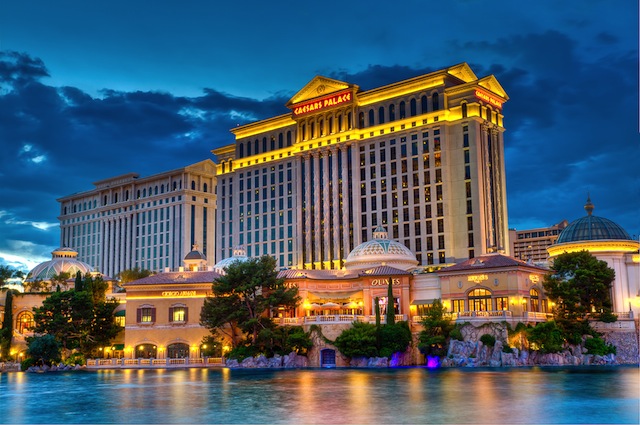Save 50% on a 3-month Digiday+ membership. Ends Dec 5.

The hospitality industry is in a unique position within the mobile space. That’s why Caesars Entertainment has used responsive design to redesign 41 of its websites (and their mobile and tablet counterparts) to ensure a good mobile experience.
Digiday spoke to the company’s vp of digital marketing, Greg Cannon, who said mobile is important to Caesars and the hospitality industry because it’s an opportunity to catch people before they book a trip and then again once they’re already vacationing to amplify the experience. Cannon explained that personalization is key both online and on mobile.
What’s Caesars’s overall digital strategy?
We’ve always been an analytical company. We’re customer-centric. In digital especially, we’ve been focusing on knowing our customers and getting familiar and intimate with guests. Based on what we know about them, we try and serve content and information relevant to them. We are really big on CRM and have a sizable investment on the mobile side and in our websites. In both mobile and on the Web, we’re trying to get people to stay at our properties and then provide them with tools to amplify their experience while staying with us.
How has mobile changed your business model?
Mobile presents us with the opportunity to reach consumers who are in market to book a trip and those who are already at the property. These are two totally different use cases. There are guests that are doing research from their devices for available dates, prices and special events, and our mobile site really caters to that. On the other hand, our mobile apps concentrate on guests who are already on the property. Based on some of the stuff their looking at in the app, like shows and restaurants, for example, we’ll suggest other things to do and see at the property. The mobile Web for us is about discovery while apps are for amplifying the experience.
What’s your advice to brands from a mobile perspective?
If you look around, our competitors are focusing on providing the same exact information on mobile apps as they provide on the mobile Web. Mobile is not just a brochure. The Web made that mistake. In the early days of the Internet, rather than focusing on loyalty programs and amplifying the experience, a lot of brands just used the Web as a brochure. Our apps, mobile Web site are all very considerate of the fact that what you do at a property dictates your experience. So if you’re looking at a specific area of a business like where to eat, we’ll highlight various restaurants for you. Personalization is key in mobile.
What makes your new redesign unique? What sets you apart from competitors?
It’s a different approach to travel. We’re different from the Four Seasons and Hiltons, because they sell hotel rooms, while we are an integrated resort. We’ve got pools, spas, night life, and we really did our best [in this redesign] to communicate that and help people shape their total experience. Also, we don’t just incorporate entertainment and nightlife that’s in our property. If you go to our competitors’ sites for Las Vegas, their main images on their websites airbrush out the surrounding hotels. With us, it’s what you see is what you get. We show the real experience.
What was the biggest challenge of this overhaul?
There were a few, but the biggest was multitasking. Forty-one sites and their mobile and tablet counterparts is difficult and took us over a year to do. Also, each of our brands is different, and we pay homage and respect to them differently. So making sure the brand tone and voice came through for each, and doing them all in parallel was also a big challenge.
Ad position: web_incontent_pos1
Image via Shutterstock
More in Marketing

Ulta, Best Buy and Adidas dominate AI holiday shopping mentions
The brands that are seeing the biggest boost from this shift in consumer behavior are some of the biggest retailers.

U.K. retailer Boots leads brand efforts to invest in ad creative’s data layer
For media dollars to make an impact, brands need ad creative that actually hits. More CMOs are investing in pre- and post-flight measurement.
Ad position: web_bfu
